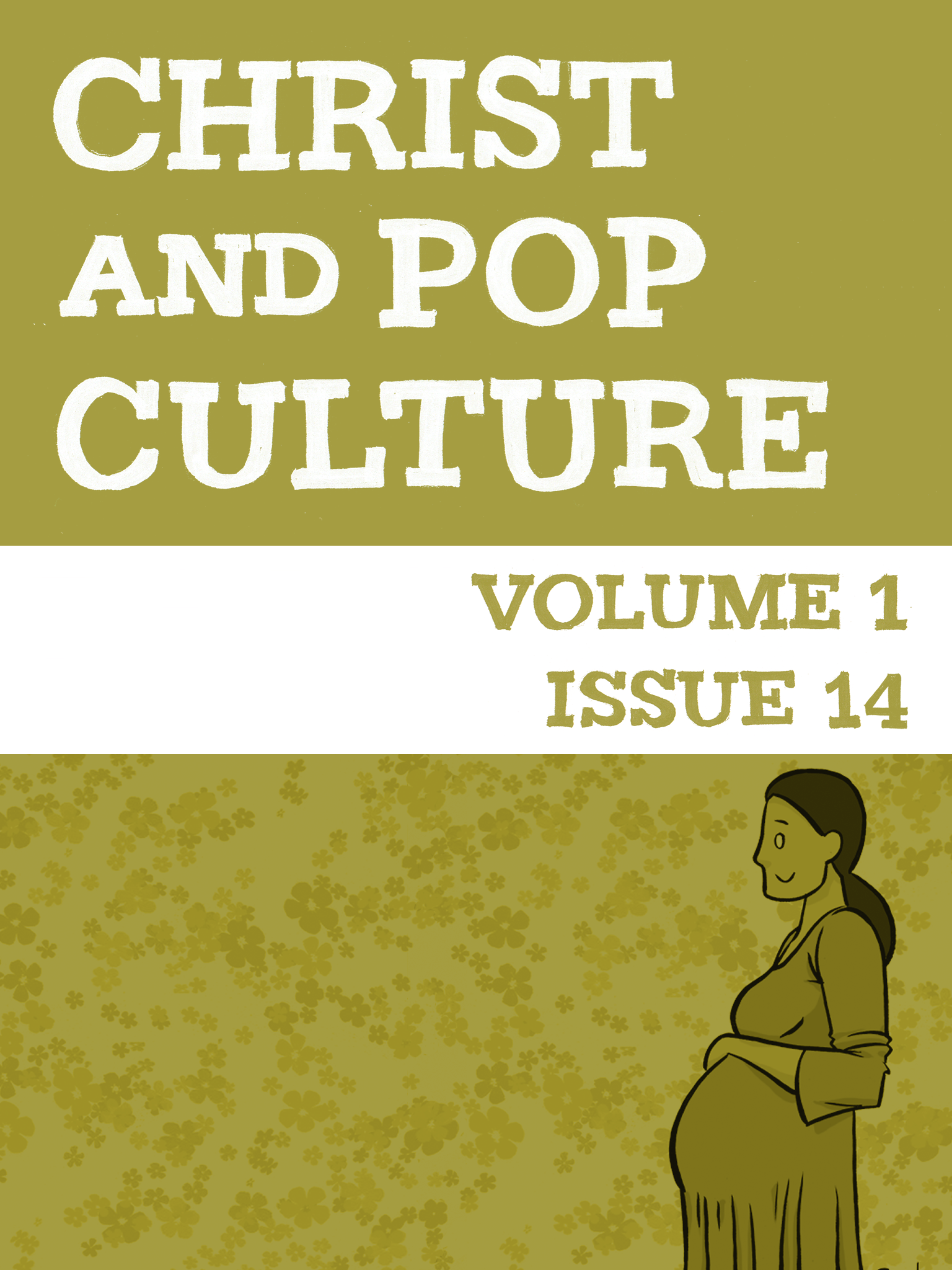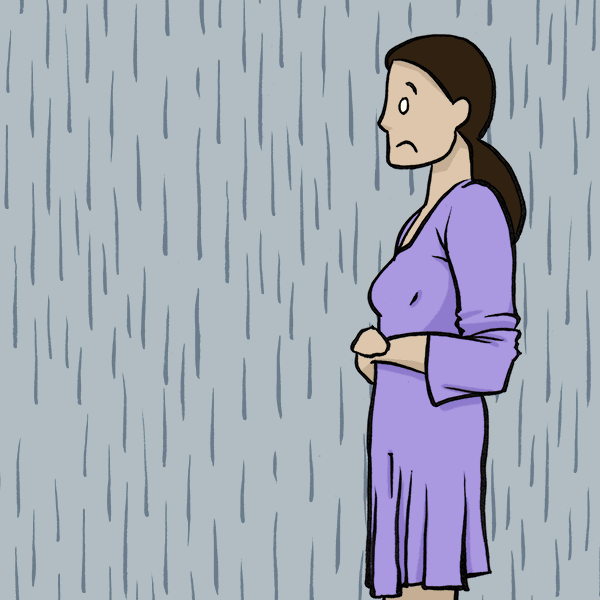
By Jeff Cavanaugh
The following is an exclusive feature that has been shared with you but is otherwise available only in Issue #14 of the Christ and Pop Culture Magazine.
For more features like this, download our app for iPad and iPhone from Apple’s App Store.
After a one-week free trial, monthly and yearly subscriptions are available for $2.99 and $29.99 respectively. New issues are available every other week. More information here.

Five years ago, my wife Andrea and I sat in our church’s Sunday evening prayer service, listening as another couple talked about their struggles with infertility and asked the church to pray for them as they endured surgeries, tests, and the misery of fertility drugs. It didn’t occur to us, at the time, that we might go through the same trial.
Three years later, we found ourselves in the same place, offering up the very same prayer requests. We felt left behind by the constant stream of pregnancy and birth announcements in the church, and felt an acute sting when members would jokingly speculate that “there must be something in the water!” For us, infertility was a painful reality.
You will most likely know someone affected by infertility, and you’ll be better prepared to love them and minister to them if you know a little bit more about what it’s like to go through this trial.
Infertility is a bigger problem than you think
The statistical data on infertility can be difficult to understand. A recent CDC study suggests infertility rates in women have fallen over the last thirty years, to around 6 per cent of women, but that doesn’t account for the whole picture, including men who are infertile, unexplained infertility, and women who have difficulty carrying a pregnancy to term. One source estimates that 1 in 8 couples (12.5%) are affected by infertility; the Mayo Clinic suggests it may be as high as one in six (17%).
 Infertility is a private issue, fraught with embarrassment and shame. Because fertility is so bound up with issues of intimacy and sex (taboo topics in their own right), people are reluctant to talk about it publicly, especially in the church. When baby-making machinery doesn’t work correctly, we’re even less inclined to talk about it – after all, the ability of men to father children and of women to carry them is a cultural touchstone of manhood and womanhood. We’re afraid that if we admit something is wrong, it reflects on us negatively. He’s afraid a low sperm count makes him less of a man. She’s afraid that her inability to become a mother means she won’t be able to fulfill what the church often implies is her highest calling.
Infertility is a private issue, fraught with embarrassment and shame. Because fertility is so bound up with issues of intimacy and sex (taboo topics in their own right), people are reluctant to talk about it publicly, especially in the church. When baby-making machinery doesn’t work correctly, we’re even less inclined to talk about it – after all, the ability of men to father children and of women to carry them is a cultural touchstone of manhood and womanhood. We’re afraid that if we admit something is wrong, it reflects on us negatively. He’s afraid a low sperm count makes him less of a man. She’s afraid that her inability to become a mother means she won’t be able to fulfill what the church often implies is her highest calling.
Infertility can wreak havoc on our relationships, too. “What’s wrong with me?” can, all too easily, lead to, “Does he wish he’d married a woman who could give him children?” “Is she disappointed in me as a husband?” Two women who have been friends for years can find their friendship suddenly strained when one of them gets pregnant, has her baby, and enters the Mom Club while the other is left on the outside, struggling with her feelings of discontentment, jealousy, and grief.
My wife and I attend a church full of young families where people seem to have children all the time. Not only does that remind infertile couples of their infertility with painful regularity, it can leave them feeling isolated and alone, out of step with everyone else their age in a different stage of life.
And then there’s the whole world of assisted reproduction and infertility treatments, which can be at times as much a curse as a blessing. Sometimes God uses those treatments to end a couple’s struggle with infertility. Often he doesn’t. And the longer would-be parents pursue them, the more easily they can get wrapped up in the endless cycle of hope and despair recently mentioned in a New York Times op-ed.
Infertile people need the church’s love
I’m painting a bleak picture of infertility here, I know. There is no way to ignore how painful it is. It is certainly the biggest trial that my wife and I have ever faced, individually or together. But God has used this trial to grow us spiritually and demonstrate his love for us in ways we couldn’t have anticipated. And the church – that network of loving, supportive, prayerful relationships that we have in Christ’s body – has been used by God to comfort and sustain us and others like us.
 That’s not to say that relationships in the church are easy when you’re struggling with infertility. Feelings of isolation and alienation we mentioned before are real. Friends in the church have seemed thoughtless at times, not thinking about how things they say might be hurtful; at other times they’ve been awkward, aware of our struggles but at a loss for what to say. Often the strain has been entirely our own fault – we’ve promised in our church covenant to “rejoice at each other’s happiness and endeavor with tenderness and sympathy to bear each other’s burdens and sorrows,” but sometimes jealousy and bitterness saps our motivation to do any rejoicing or accept any comfort.
That’s not to say that relationships in the church are easy when you’re struggling with infertility. Feelings of isolation and alienation we mentioned before are real. Friends in the church have seemed thoughtless at times, not thinking about how things they say might be hurtful; at other times they’ve been awkward, aware of our struggles but at a loss for what to say. Often the strain has been entirely our own fault – we’ve promised in our church covenant to “rejoice at each other’s happiness and endeavor with tenderness and sympathy to bear each other’s burdens and sorrows,” but sometimes jealousy and bitterness saps our motivation to do any rejoicing or accept any comfort.
Nonetheless, our church family has been a major pillar of support and source of comfort to us through this journey of infertility. Sometimes that has come through friends asking us how we’re doing with it, and telling us they’ve been praying for us. Sometimes the comfort comes through talking with others who have experienced infertility too, reminding us that others know what we’re going through. But far more often, God has simply used the regular preaching of the Word and ordinary fellowship with the saints to keep us connected to Himself and remind us that He is with us and loves us.
If you know people in your church who are dealing with infertility, be prepared to sympathize when the topic comes up, but you can do so much to encourage them simply by being a friend. Make a point of getting to know them, spending time with them, and encouraging them spiritually in the ordinary course of life. Sometimes when infertile couples are in the throes of feeling isolated and desperate to be normal, they just need you to be a friend, to remind them that they are normal, that you like them, and that you want to live the Christian life side-by-side with them.
Infertile people need the church’s accountability
In his book Adopted for Life, Russell Moore points out that the grief and pain that comes with infertility can put infertile people in a spiritually dangerous position. While a godly friend might confront someone who’s struggling with anger or lust, few people with an ounce of compassion would dare to confront a fellow Christian over the sins that infertility can give rise to – anger, discontent, jealousy, bitterness, idolatry.
 If you have a friend in the church who is struggling with infertility, the best thing you can do for them in this regard is not to confront them at the first sign of a sinful response. When someone is hurting, it’s extremely difficult to untangle the angry cry of a heart that’s bitter toward God from the anguished cry of a child who wants his Father to make things right.
If you have a friend in the church who is struggling with infertility, the best thing you can do for them in this regard is not to confront them at the first sign of a sinful response. When someone is hurting, it’s extremely difficult to untangle the angry cry of a heart that’s bitter toward God from the anguished cry of a child who wants his Father to make things right.
Instead, cultivate the kind of open, honest relationship with them that makes your friendship a safe space for them to vent their pain, confess their sins, and ask for accountability and prayer. Take the lead by being willing to confess your own sins and make yourself vulnerable. When sin has grown so malignant that it’s poisoning everything around an infertile person, there may come time for gentle, loving, humble confrontation and correction. But most of the time, just being a willing confidant and confessor will be enough for God to use you to encourage and protect your friend.
If you are a pastor or a church leader, make your church’s teaching and worship as scripturally and confessionally robust as possible. God intends to use them as guardrails to keep hurting people in your church from sin, and as signposts pointing towards the hope that we have in Christ.
***
Infertility is a terrible plague, a legacy of the Fall that we are forced to confront all too often in the church. But if God has put infertile people in the pews next to you – and he almost certainly has – he has given you a tremendous opportunity to sympathize with them, to love them by being a friend, and to encourage them. Be thoughtful, take note of the hurting people around you, and show yourself ready to be a friend.
In my own walk through the trial of infertility, God has made the preaching, reading of Scripture, prayers, confessions, and singing of the church come alive with hope, comfort, and encouragement. My wife and I have been reminded from the pulpit of God’s sovereignty and his care for his sheep, and we’ve come to a new understanding of how he intends even this trial for our good. We’ve recited the creeds and remembered the saints who have confessed them for thousands of years, despite suffering far more than we have. We’ve sung lines from old hymns about following Christ wherever He leads and realized that, for us, that means following him through the valley of the shadow of infertility.
Jeff Cavanaugh lives with his wife Andrea in Louisville, where they attend Third Avenue Baptist Church. They are in the process of adopting their first child.